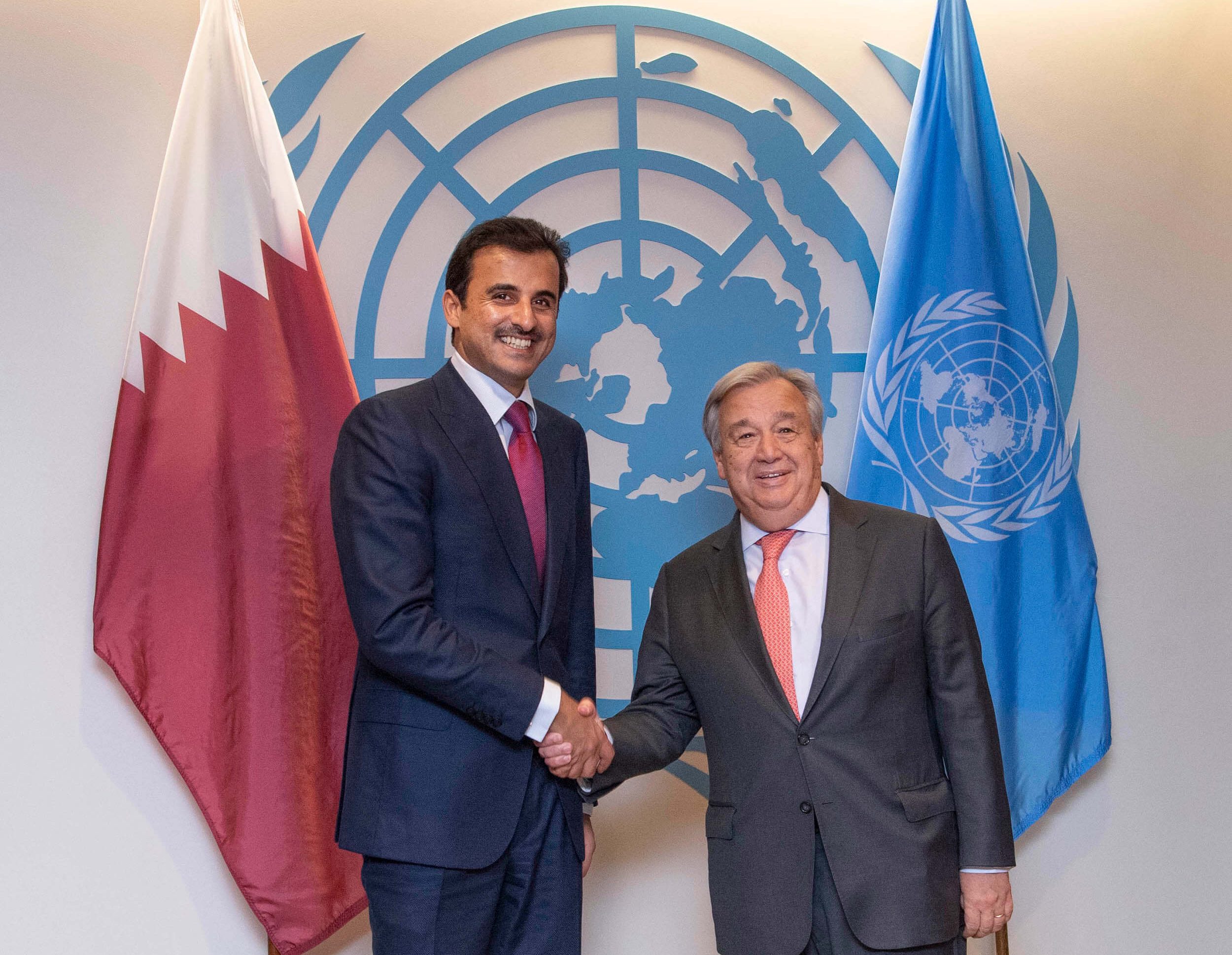Qatar played a prominent role in Gaza in May 2021 when it brokered a ceasefire following the 11-day Israeli offensive on the city.
UN Secretary-General Antonio Guterres has thanked Qatar’s Amir Sheikh Tamim bin Hamad Al Thani for his efforts in Gaza during a phone call.
According to Qatar’s News Agency (QNA), Sheikh Tamim and the UN official also discussed other issues of common concern, without providing additional information on the conversation.
The Gulf state has been providing the besieged Gaza strip with humanitarian aid to help meet the needs of the city’s 2.1 million population. The Palestinian city became known as the world’s largest open-air prison due to the air, land and sea blockade imposed by Israel in 2007.
Qatar has repeatedly ruled out normalising with Israel as long as it continues its illegal occupation of Palestine and carry out human rights violations against Palestinians.
Last year, Qatar granted Gaza with $360 million, an amount that was disbursed throughout 2021. In 2019, the Gulf state pledged $480 million to support of Palestinians in the West Bank and Gaza.
Qatar played a prominent role in Gaza in May 2021, when it worked alongside Egypt in brokering a ceasefire following the 11-day Israeli offensive on the city. At least 260 Palestinians, including 66 children, were killed by the Zionist state’s attacks.
Social media users in Qatar express outrage at Israel’s latest killings of Palestinians
The Israeli airstrikes destroyed large parts of the city and key commercial buildings, including Al Jazeera’s office and the Qatar Red Crescent Society’s (QRCS) headquarters. The buildings were completely leveled as Israel insisted that it was fighting Hamas.
Qatar’s Amir Sheikh Tamim bin Hamad Al Thani allocated $500 million worth of aid to rebuild the city following the bombings.
Half of the aid package has contributed to providing Palestinians with electricity to help increase Gaza’s power supply from two-to-16 hours per day. The other half of the donations went towards 430,000 of the poorest families living in the city, each of which receives $100.
Commenting on allegations made at the time over the money funding the ruling Hamas movement in the city, Qatar’s Foreign Minister Sheikh Mohammed bin Abdulrahman Al-Thani said, “Palestinians are not only Hamas.”
“We cannot reduce the Palestinian people living under occupation and consolidate them in just one group…there are people who are suffering and suffered from this war, there have been a lot of children killed in the war,” said Sheikh Mohammed in May last year.
During the same month, QRCS launched a 60 million QAR fundraising campaign for Palestine under the title ‘We Are All Palestine’. The campaign aimed at benefitting more than 593,000 Palestinians in Gaza, Jerusalem and several cities in the West Bank.
Before the flare up in Gaza, Qatar announced plans to establish a natural gas pipeline to double the city’s daily electricity supply to 400 megawatts. The European Union had contributed some $5 million to install gas pipelines from the Gaza border to the power plant.
In June, Qatar-funded fuel entered the Gaza Strip to power the city’s electricity station for the first time since the May. The fuel supply had stopped reaching Gaza due to Israeli restrictions that limited the entry of Qatari fuel to the Strip.
The entire population in Gaza requires at least 600 megawatts of electricity to fulfill its 24/7 supply. Residents receive electricity in eight-hour rotations and suffer in the heat with no power.
Israel also withholds fuel from the power plants and had stopped supply in 2020 to the only power plant in Gaza, forcing it to shut down. It also controls up to 90% of water sources and figures show just 10.5% Palestinians in Gaza have access to safe drinking water.
More than 96% of water in Gaza’s aquifers are not safe for consumption, forcing Palestinians to buy water at inflated prices despite their full right to access it for free.
The poverty rate in Gaza has increased from 40% in 2005 to 56% in 2020.
Trucks carrying good to the strip constantly face obstacles under the apartheid state with key crossings being closed at unexpected times.
Before the embargo, at least 30,000 Palestinians were able to travel through the Erez crossing on a monthly basis. The number decreased by 85% as of 2020. This is also the case for the Rafah crossing.







